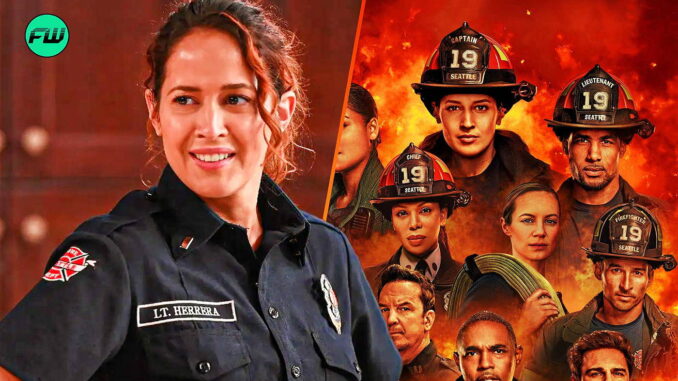
The Ashes of Ambition: Why Station 19 Was Canceled After Seven Seasons
The siren's wail, the clang of metal, the desperate cries for help – these were the familiar sounds emanating from Station 19, ABC's Seattle-based firefighter drama. For seven seasons, the show offered viewers a visceral glimpse into the lives and loves of the brave men and women battling blazes, navigating personal crises, and forging unbreakable bonds. Yet, despite its loyal fanbase and its strong connection to the Grey's Anatomy universe, Station 19 was abruptly canceled, leaving fans with a lingering question: why? While the network has officially attributed the cancellation to creative reasons and budgetary constraints, the reality is likely a complex confluence of factors that extinguished the show's fire after a respectable run.
One of the most significant contributing factors was undoubtedly the shadow cast by its older, more established sibling, Grey's Anatomy. Station 19 was initially conceived as a spin-off, leveraging the popularity of Grey Sloan Memorial Hospital and its iconic characters. The crossover events, a guaranteed ratings booster, served to intertwine the narratives and draw viewers from one show to the other. However, this reliance on Grey's Anatomy became a double-edged sword. While providing a built-in audience, it also meant that Station 19 often felt secondary, a satellite orbiting the larger, more luminous planet. Plotlines felt subservient to Grey's Anatomy's needs, character arcs often felt truncated or sacrificed to maintain the delicate balance of the crossover narrative. The constant comparisons, often favoring the original, may have ultimately hampered Station 19's ability to fully establish its own unique identity and stand on its own two feet.
Furthermore, the creative direction of the show, particularly in later seasons, faced criticism. While Station 19 always tackled socially relevant issues – systemic racism, police brutality, mental health struggles – some argued that it sometimes veered into preachy territory, sacrificing nuanced storytelling for heavy-handed messaging. The focus occasionally shifted away from the gritty realities of firefighting and rescue work, becoming more about the personal drama and political agendas of the characters. This risked alienating viewers who were drawn to the show for the action, suspense, and camaraderie of the firehouse. The increasing emphasis on romantic relationships, while a staple of the genre, at times felt forced and contrived, further distracting from the core appeal of the show.
Beyond creative choices, budgetary constraints likely played a pivotal role in the decision to cancel Station 19. Network television is a business, and shows are constantly evaluated based on their cost-effectiveness. As a drama with elaborate sets, special effects, and a sizable ensemble cast, Station 19 was undoubtedly an expensive production. With viewership numbers fluctuating and the network facing increasing pressure to cut costs, the show's high production value may have become unsustainable. The network may have deemed that the show's return on investment simply wasn't high enough to justify its continued existence, especially when compared to other potential programming options.
Finally, the changing landscape of television consumption cannot be ignored. The rise of streaming services has drastically altered viewing habits, with many viewers opting to binge-watch shows on demand rather than tune in for weekly episodes. This shift has put pressure on traditional network television to adapt and compete. While Station 19 had a loyal following, it may have struggled to maintain consistent viewership in this fragmented media environment. The competition for viewers' attention is fiercer than ever, and shows that fail to resonate with a broad audience face an uphill battle for survival.
In conclusion, the cancellation of Station 19 after seven seasons was likely the result of a complex interplay of factors. From its dependence on Grey's Anatomy and inconsistent creative choices to budgetary constraints and the changing media landscape, the show faced a series of challenges that ultimately proved insurmountable. While the show provided moments of genuine excitement, heartfelt drama, and social commentary, it ultimately failed to consistently capture the imagination of a broad audience and justify its continued existence in the eyes of the network. As the firehouse doors close for the final time, Station 19 leaves behind a legacy of bravery, camaraderie, and a bittersweet reminder of the volatile and unpredictable nature of television entertainment. The ashes may have settled, but the echoes of the siren's wail will linger for fans who cherished the show's fiery spirit.